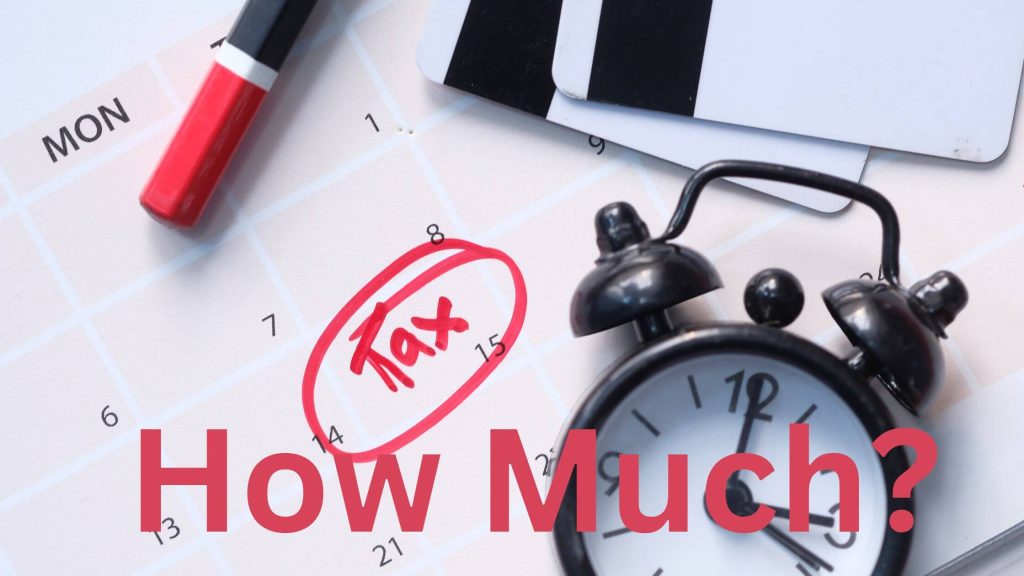How do I claim my KRA refund?
Intro
Are you tired of waiting for your KRA tax refund? Filing for a refund can be a tedious and confusing process, but we’re here to make it easier for you. In this blog post, we will guide you through the KRA refund claim process and provide you with the necessary steps to get your money back in your account. So, whether you overpaid your taxes or are eligible for a tax credit, follow these simple steps and get your KRA refund hassle-free.
Understanding What a KRA Tax Refund Is
Understanding What a KRA Tax Refund Is
A KRA tax refund is a reimbursement of excess tax paid to the Kenya Revenue Authority (KRA). When you pay your taxes, there may be instances where you end up overpaying. This could happen if you miscalculated your tax liability or if you are eligible for refundable tax credits. In such cases, the KRA allows you to claim a refund for the excess amount paid.
To determine if you are eligible for a KRA refund, you need to meet certain criteria set by the tax authority. These criteria can include having overpaid your taxes, qualifying for specific tax deductions, or being eligible for refundable tax credits. It is important to understand these eligibility requirements so that you can accurately assess your eligibility for a refund.
Claiming a KRA refund can provide significant financial relief. By understanding the process and the eligibility criteria, you can ensure that you receive the money you are entitled to. In the next section, we will explore how you can identify if you are eligible for a KRA refund and the necessary steps to claim it. Stay tuned!
Identifying If You Are Eligible for a KRA Refund
To determine if you are eligible for a KRA refund, you need to understand the concept of refundable tax credits and the criteria set by the Kenya Revenue Authority (KRA). Refundable tax credits are specific deductions that can reduce your tax liability below zero, resulting in a refund. These credits include items such as education expenses, medical expenses, and charitable donations. By utilizing these credits, you can increase your chances of receiving a refund.
Additionally, the KRA sets eligibility criteria for tax refunds. This can include factors such as overpaid taxes, specific deductions you qualify for, or being eligible for refundable tax credits. To check if you meet these criteria, you can review your tax returns and consult the KRA website or seek professional advice from a tax expert. They can guide you in identifying if you are eligible for a refund based on your specific circumstances.
It’s crucial to understand your tax refund eligibility to maximize your chances of receiving a refund. In the next section, we will provide a step-by-step guide to help you claim your KRA refund successfully. Stay tuned!
Step-by-Step Guide to Claiming Your KRA Refund
If you believe you are eligible for a KRA refund, follow this step-by-step guide to claim your money back.
- Gather the necessary documents: Start by gathering all the relevant documents, including your tax returns, receipts, and any supporting documentation that shows your eligibility for a refund. Having these documents ready will streamline the process and help ensure a smooth refund claim.
- Review your tax returns: Carefully review your tax returns to identify any potential overpaid taxes or refundable tax credits. Look for deductions you may qualify for, such as education expenses, medical expenses, or charitable donations. By utilizing these refundable tax credits, you can increase your chances of receiving a refund.
3. Fill out the KRA refund claim form: Once you have identified the overpaid taxes or refundable tax credits, you will need to fill out the KRA refund claim form. You will find this KRA website be obtained from their offices. Provide accurate information and attach all the required documents.
4. Submit your refund claim: Once you have completed the refund claim form and attached the necessary documents, submit it to the KRA. You can do this either online through their eFiling platform or by visiting their offices in person. Make sure to keep a copy of your claim form for your records.
5. Wait for processing: After submitting your refund claim, it will go through a processing period. The KRA will review your claim and verify the information provided. This process can take some time, so be patient. Keep track of any reference numbers or communication you receive from the KRA during this period.
6. Receive your refund: If your refund claim is approved, the KRA will issue the refund directly to your bank account. You will receive a notification once the refund has been processed and deposited into your account. Make sure to double-check your bank account regularly to ensure you receive the refund.
By following these steps, you can successfully claim your KRA refund. Remember to review your tax returns, identify refundable tax credits, fill out the refund claim form accurately, submit it to the KRA, and patiently wait for the refund to be processed. With a little effort and persistence, you can get the money you are owed. Good luck!
What You Need to Know About the KRA Refund Timeline
When it comes to the tax refund timeline, it’s important to understand that the process may take some time. The exact timeline will vary depending on several factors, such as the complexity of your refund claim and the volume of claims will be processed by the Kenya Revenue Authority (KRA).
Typically, once you submit your refund claim, the KRA will review and verify the information provided. This verification process can take several weeks or even months, especially during peak tax seasons. It’s important to be patient and avoid constantly contacting the KRA for updates, as this may delay the processing of your claim.
If your refund claim is approved, the KRA will then issue the refund directly to your bank account. The time it will take for the refund to be processed and deposited into your account will vary, but it is usually within a few weeks of approval.
To ensure a smooth and timely refund process, make sure to accurately fill out the refund claim form, provide all required supporting documents, and submit your claim as early as possible. By following these guidelines and being patient, you can maximize your chances of receiving your refund in a timely manner.
Things to Remember When Claiming Your KRA Refund
When claiming for the refund, there are a few important things to keep in mind to ensure a smooth process. First, familiarize yourself with the concept of refundable tax credits. These credits can significantly reduce your tax liability and increase your chances of receiving a refund. By understanding the different types of refundable tax credits and how they apply to your specific circumstances, you can accurately assess your tax refund eligibility.
Next, make sure to gather all the necessary documents and double-check them for accuracy before submitting your refund claim. Providing accurate information and supporting documentation is crucial for a successful claim. Additionally, be aware of the KRA refund timeline and avoid constantly contacting the KRA for updates, as this may delay the processing of your claim.
Lastly, keep in mind that claiming a KRA refund requires patience. The process can take time, especially during peak tax seasons. Stay proactive by keeping track of any communication or reference numbers you receive from the KRA and regularly checking your bank account for the refund deposit. By following these tips and being persistent, you can increase your chances of a successful KRA refund claim.
How to Avoid Overpaying Tax in the Future
To avoid overpaying tax in the future and maximize your chances of receiving a refund, there are several strategies you can implement. First, familiarize yourself with refundable tax credits offered by the KRA. By understanding the different types of refundable tax credits and how they apply to your specific circumstances, you can effectively reduce your tax liability and increase your chances of receiving a refund. Additionally, staying updated on the eligibility criteria for the refunds set by the KRA is essential.
Regularly reviewing your tax returns and consulting a tax expert can help ensure that you are taking advantage of any deductions or credits you may qualify for. Another important step is to keep thorough records of all your income and expenses throughout the year. This will make it easier to accurately calculate your tax liability and identify any potential overpayment. Finally, consider seeking professional advice from a tax expert or financial advisor to help you navigate the tax system and optimize your tax planning strategies. By implementing these tips and staying informed, you can avoid overpaying tax in the future and increase your chances of receiving a KRA refund.



Pingback: Get your money back: All you need to know about KRA tax refunds - Kenya Tax %
“Steps to Take if Your Refund is Delayed”
Coming right up in this weeks blog… I’ll Pin it for you
do Kenya really refund the taxes to individuals or just corporates.?
Does a kra acknowledge for refund expires ?
Yes, there is a time limit for claiming a tax refund in Kenya through the Kenya Revenue Authority (KRA).